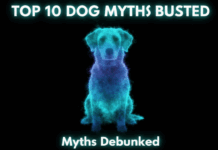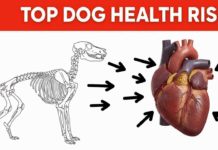Last Updated on July 29, 2024 by Dogs Vets
Experiencing the death of a beloved pet can stir up intense emotions, often feeling more profound than losing a human loved one.This unique grief arises from the deep bonds shared between pets and their owners. Understanding and coping with this grief is crucial for healing.
The Deep Impact of Pet Loss
Losing a pet can feel like a world-shattering event, much like losing a close human friend or family member. As Jennifer Golbeck, a professor at the University of Maryland, notes, pets are often considered family members
Many people form relationships with their pets that can surpass those with human relatives. This deep connection can make the grief of losing a pet particularly intense.
Unique Grieving Process
Grieving the loss of a pet often involves complex emotions. Research indicates that pet loss grief can be as overwhelming as losing a human. Pet owners may experience additional layers of pain, such as guilt or a sense of misunderstanding from others who might dismiss the significance of the loss.

Understanding the Bond
Pets offer a relationship marked by unconditional love and simplicity. Unlike human relationships, which can be fraught with misunderstandings and conflicts, the bond with a pet is straightforward and fulfilling.
This uncomplicated nature can make the loss feel even more profound. David Freifeld, who recently lost his bernedoodle, Ramy, describes how pets enter our lives with unwavering affection and trust, amplifying the pain of their loss.
The Loneliness of Pet Grief
Losing a pet can also lead to a feeling of isolation. Friends and family who don’t own pets might struggle to empathize, leading to a lack of support.
As Michelle Crossley of the Association for Pet Loss and Bereavement explains, some people may even encounter dismissive comments suggesting they should “just get another pet,” exacerbating feelings of loneliness.
Finding Support
Seeking support from those who understand the depth of pet loss can be invaluable. Pet grief support groups and online forums have seen increased demand, offering spaces for individuals to share their experiences and find comfort.
Creating personal memorials or rituals can also help in processing the grief.
Coping with Guilt
Many pet owners feel guilt over decisions made at the end of their pet’s life. Michelle Crossley suggests writing a letter to the pet, expressing regrets and affirmations of the joy shared.
This can help in coming to terms with the loss and finding resolution.
Moving Forward
As time passes, integrating the memory of a lost pet into one’s life can aid in healing. Remembering the joyful moments shared with the pet, rather than focusing solely on the pain of their absence, can help in achieving a sense of resolution.
Despite the ongoing grief, the love and memories remain a cherished part of one’s life.
Losing a pet is undeniably painful, but with time and support, healing is possible. The memories and love shared with a pet can continue to provide comfort and joy long after their passing.
References
- Golbeck, J. (2024). Understanding Pet Loss Grief. University of Maryland.
- Crossley, M. (2024). Coping with the Loss of a Pet. Association for Pet Loss and Bereavement.
FAQs
- Why does losing a pet feel more intense than losing a human? Pets often provide unconditional love and simplicity, making their loss feel particularly profound.
- What are common emotions experienced after losing a pet? Common emotions include intense grief, guilt, and a sense of being misunderstood by others.
- How can I cope with the grief of losing a pet? Seeking support from understanding individuals, joining pet grief support groups, and creating personal memorials can help in the grieving process.
Source: The washington post























